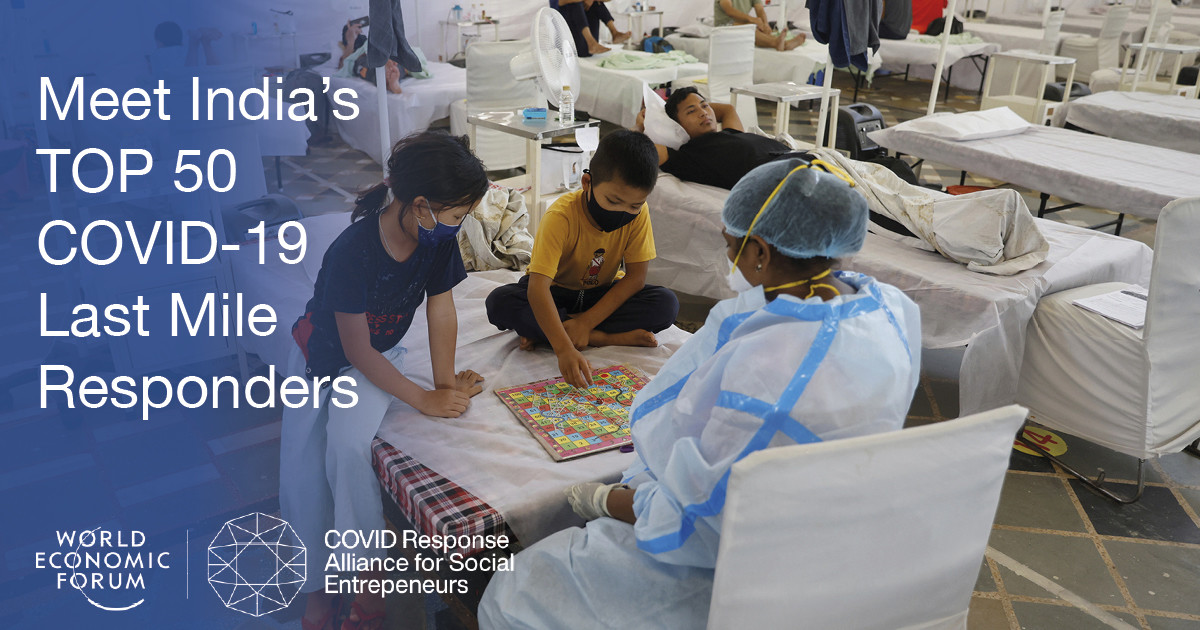COVID-19: What you need to know about the coronavirus pandemic on 25 August

The push to vaccinate the world continues.
Image: REUTERS/Ajeng Dinar Ulfiana
Explore and monitor how COVID-19 is affecting economies, industries and global issues
Stay up to date:
COVID-19
- This daily round-up brings you a selection of the latest news and updates on the COVID-19 pandemic, as well as tips and tools to help you stay informed and protected.
- Top stories: US could control COVID-19 by spring 2022 if more people get vaccinated - Fauci; Delta cases show 300 times higher viral load, South Korea study; COVID-19 deaths in Iran hit record daily high.
1. How COVID-19 is affecting the globe
Confirmed cases of COVID-19 have passed 213.2 million globally, according to Johns Hopkins University. The number of confirmed deaths stands at more than 4.45 million. More than 5 billion vaccination doses have been administered globally, according to Our World in Data.
Sydney's daily COVID-19 infections have hit a record high, putting parts of the healthcare system under pressure.
Japan is set to expand a state of emergency to eight more prefectures, bringing the total to 21, the minister in charge of coronavirus countermeasures said today.
New US data shows an increase in 'breakthrough' infections among fully vaccinated individuals. However, the vaccine did protect against severe illness in almost all cases.
Indonesia has granted emergency use approval to Russia's Sputnik V COVID-19 vaccine.
The US will donate 1 million COVID-19 vaccine doses to Viet Nam, Vice President Kamala Harris told Vietnamese Prime Minister Pham Minh Chinh during a meeting in Hanoi.
The US also shipped just over 3 million COVID-19 vaccine doses to Pakistan yesterday via COVAX, a White House official said.
The European Medicines Agency has approved additional manufacturing sites for mRNA-based COVID-19 vaccines developed by Pfizer/BioNTech and Moderna in an effort to boost production.
COVID-19 deaths in Iran hit a record daily high of 709 on Tuesday. 40,623 new infections were also reported, bringing total confirmed cases to 4.75 million.
Britain recorded 174 new COVID-19 deaths on Tuesday - the highest tally since 12 March.
The French health watchdog has backed COVID-19 booster shots for those aged over 65 and those with existing medical conditions.
Greece has said it will end free testing for unvaccinated people, in a bid to encourage people to get inoculated.

2. US could control COVID-19 by spring 2022 if more people get vaccinated - Fauci
The United States could get COVID-19 under control by spring next year if vaccinations ramp up, Dr Anthony Fauci, the country's top infectious disease expert, said yesterday.
The Food and Drug Administration's full approval of the Pfizer/BioNTech COVID-19 vaccine paves the way for more people to get vaccinated, he said, adding there's potential for approval of the Moderna shot in the coming weeks.
"I would like to appeal to the people in the country who are not vaccinated to realize that we have the capability, among ourselves, to essentially cut down the time frame to getting to the end of this pandemic," Fauci, head of the National Institutes of Allergy and Infectious Diseases, told a press conference.
"I think there's a reasonable chance" that Pfizer or Moderna could get FDA clearance for children under 12 before the upcoming holiday season, he told NBC News. "Hopefully by the mid-late fall and early winter."
India’s leading COVID-19 last-mile responders
3. Delta cases show 300 times higher viral load
People infected with the Delta variant have a viral load 300 times higher than those with the original COVID-19 virus, when symptoms are first observed, a South Korean study has reported.
But this amount decreases over time - to 30 times in four days, over 10 times in nine days and it matched levels seen in other variants after 10 days, Korea Disease Control and Prevention Agency said.
This higher load means the virus spreads more easily from person to person - increasing infections and hospitalizations.
"But it doesn't mean Delta is 300 times more infectious... we think its transmission rate is 1.6 times the Alpha variant, and about two times the original version of the virus," health ministry official Lee Sang-won said.
Accept our marketing cookies to access this content.
These cookies are currently disabled in your browser.
Don't miss any update on this topic
Create a free account and access your personalized content collection with our latest publications and analyses.
License and Republishing
World Economic Forum articles may be republished in accordance with the Creative Commons Attribution-NonCommercial-NoDerivatives 4.0 International Public License, and in accordance with our Terms of Use.
The views expressed in this article are those of the author alone and not the World Economic Forum.
Forum Stories newsletter
Bringing you weekly curated insights and analysis on the global issues that matter.
More on Health and Healthcare SystemsSee all
Sofiat Makanjuola-Akinola and Dr Zainab Shinkafi-Bagudu
May 19, 2025
Shyam Bishen and Lorna Friedman
May 19, 2025
Shyam Bishen
May 19, 2025





